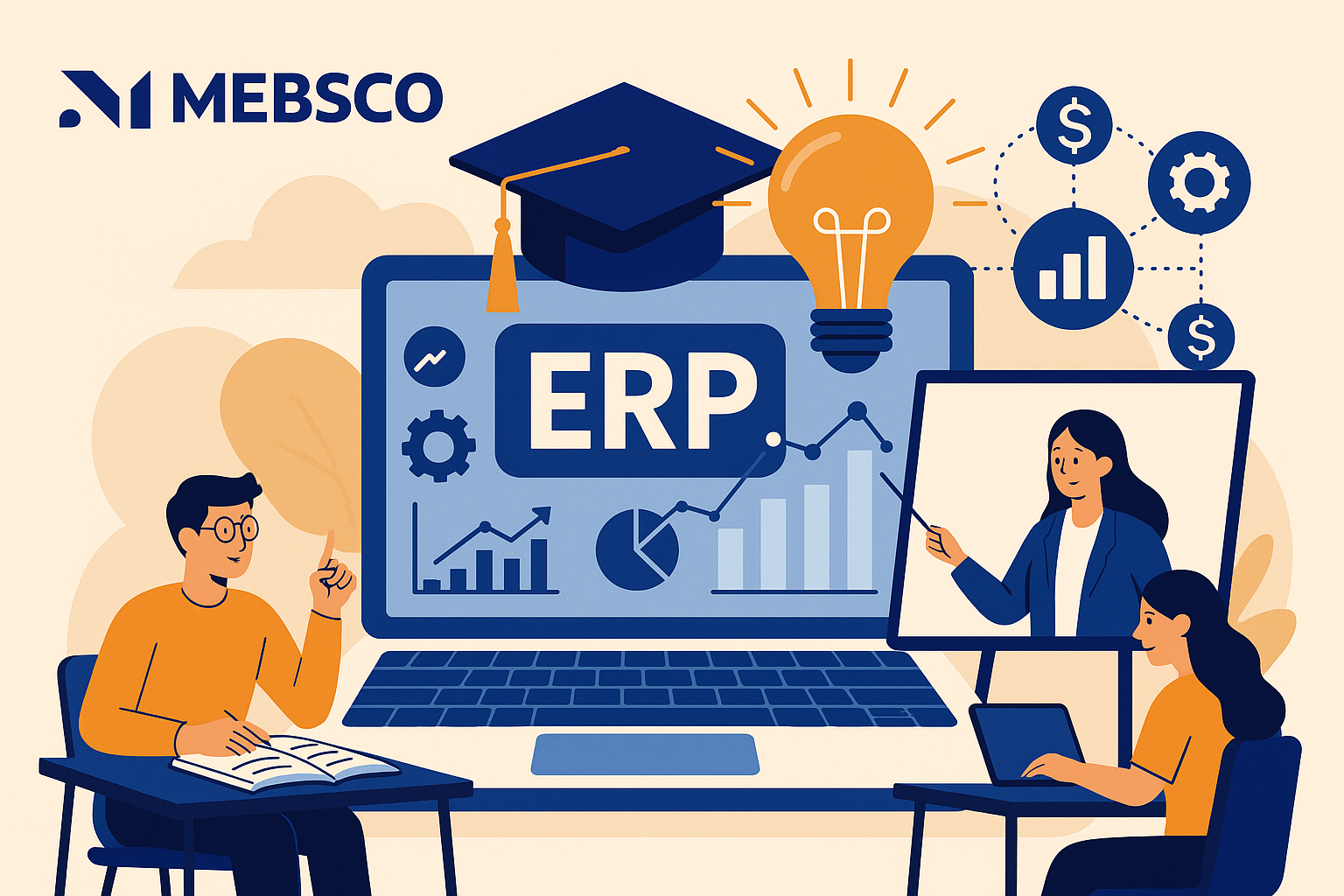
Introduction to ERP Systems
Enterprise Resource Planning (ERP) systems are integrated platforms that organizations use to manage and streamline their core business processes, such as finance, human resources, supply chain, procurement, and customer relations. These systems unify different departments and functions onto a single computer system that serves the needs of various units, enhancing efficiency and accuracy across the board.
In today’s business environment, characterized by rapid globalization and digital transformation, ERP systems play a pivotal role. They enable businesses to respond quickly to market demands, improve customer service, and achieve operational excellence. Organizations that leverage ERP systems gain real-time insights into their operations, allowing for better decision-making and strategic planning.
As the world becomes increasingly interconnected, understanding ERP systems is not just an IT concern—it’s a business imperative. Whether in multinational corporations or small startups, ERP systems are essential tools for managing growth, reducing costs, and maintaining competitive advantage. Yet, despite their significance, ERP concepts are often absent from traditional educational curricula, leaving a critical knowledge gap in the workforce.
Educating the next generation about ERP systems means preparing them for the realities of modern workplaces. By introducing ERP fundamentals early, students can grasp how various business functions interrelate, giving them a holistic view of organizational operations. This foundational knowledge is crucial not only for aspiring business professionals but also for those entering technical, analytical, or managerial roles.
The Growing Role of Technology in Education
Education has undergone a significant transformation over the past two decades, with technology playing a central role in reshaping how knowledge is delivered, consumed, and applied. From digital classrooms and e-learning platforms to AI-driven personalized education, today’s learning environments are increasingly interactive, adaptive, and data-driven.
The integration of digital tools into education has enabled students to learn at their own pace, access vast resources online, and gain hands-on experience with real-world applications. This evolution is not limited to high-income countries—emerging economies are also investing heavily in educational technologies to bridge the knowledge gap and empower future generations.
ERP systems naturally align with this digital shift. They provide the perfect case study for understanding data flows, systems integration, and process optimization—all skills highly valued in the digital economy. When students are introduced to ERP platforms like SAP, Oracle, or Microsoft Dynamics, they gain practical exposure to technologies used in top-tier organizations globally.
Furthermore, learning ERP in an educational setting cultivates digital literacy. Students not only learn how to use complex software but also understand the logic behind enterprise systems and data management. This positions them to be proactive contributors in their future workplaces, capable of navigating and even leading digital transformations.
Incorporating ERP systems into education is not just about teaching software—it’s about fostering a mindset of systems thinking, where learners understand how various components of a business interconnect and operate in unison.
Bridging the Gap Between Education and Industry Needs
A common critique of modern education systems is their failure to align with industry needs. Graduates often leave universities with theoretical knowledge but lack the practical skills required in the workforce. This disconnect leads to longer onboarding times, higher training costs for companies, and frustration among new employees.
ERP systems represent a critical area where this gap is particularly evident. Despite the widespread use of ERP platforms across industries, few academic programs provide students with exposure to these systems. As a result, employers struggle to find candidates who understand integrated business processes, enterprise data structures, and cross-functional workflows.
By integrating ERP fundamentals into the curriculum, educational institutions can significantly enhance their students’ employability. Knowledge of ERP not only makes graduates more competitive in the job market but also prepares them for a wide range of roles—from operations and logistics to finance and IT.
The demand for ERP skills is growing rapidly. According to industry reports, ERP-related job postings have seen consistent growth, with companies seeking candidates who can hit the ground running. Positions such as ERP analysts, consultants, developers, and implementation specialists are in high demand.
Bridging the education-industry gap through ERP education ensures that students are equipped with relevant, in-demand skills. It also creates a pipeline of talent for businesses, reducing the cost and time required to train new hires. In the long term, this alignment benefits both the workforce and the broader economy.
Benefits of Teaching ERP Basics Early
Introducing ERP concepts at an early educational stage—whether in high school or the first years of college—offers several advantages. Firstly, it enhances digital literacy. Students become familiar with enterprise software interfaces, data input protocols, and the significance of accurate, timely data management.
Secondly, ERP education promotes analytical thinking. ERP systems involve large datasets and complex workflows. Understanding how to navigate, analyze, and draw insights from this data fosters a strong analytical mindset—an essential skill in today’s data-driven world.
Thirdly, ERP fundamentals help students connect theoretical concepts to real-world applications. For example, when learning about supply and demand in economics, students can see how ERP software tracks inventory, predicts shortages, and suggests reorders. This bridges abstract learning with tangible experiences.
Moreover, ERP knowledge cultivates collaboration and communication skills. Many ERP exercises involve group projects where students simulate running a business using ERP software. These simulations teach them how departments must coordinate and share information effectively.
By learning ERP early, students also develop adaptability. ERP systems often evolve, and becoming comfortable with them teaches students how to learn and adapt to new technologies—an invaluable skill as workplaces continually adopt new digital tools.
Ultimately, teaching ERP basics early lays a strong foundation for future success. Whether students pursue careers in business, IT, healthcare, or engineering, their understanding of ERP systems will be a valuable asset that sets them apart.
Real-World Applications Across Industries
ERP systems are not confined to one sector—they are used globally across industries to manage complex operations and ensure organizational efficiency. Understanding these real-world applications helps students appreciate the relevance of ERP and see the direct impact of these systems on everyday life.
In healthcare, ERP systems manage patient records, inventory, billing, and compliance. Hospitals use ERP to coordinate between departments, track supplies, and improve patient care through streamlined operations.
In retail, ERP systems support inventory management, customer relationship management (CRM), sales tracking, and supply chain logistics. Large retailers like Walmart and Amazon rely on ERP platforms to ensure that products are stocked, shipped, and sold efficiently.
Manufacturing is another major user of ERP systems. From materials planning and production scheduling to quality control and financial management, ERP software helps manufacturers reduce waste, improve productivity, and meet customer demands.
Even educational institutions use ERP systems. Universities and schools employ ERP platforms to manage student records, course scheduling, payroll, and facilities. This enhances administrative efficiency and improves the student experience.
These diverse applications show that ERP knowledge is universally applicable. Students with ERP training can pursue careers in a variety of fields, confident that their skills are in demand. Moreover, understanding how ERP systems operate across sectors fosters an appreciation for operational excellence and the role of technology in organizational success.
Empowering Future Entrepreneurs and Business Leaders
Entrepreneurship and leadership require a deep understanding of how businesses function. ERP systems provide a comprehensive view of an organization’s operations, making them a valuable learning tool for aspiring entrepreneurs and future business leaders.
When students learn about ERP systems, they gain insights into critical areas such as finance, inventory, procurement, sales, and human resources. This integrated perspective helps them make informed decisions, allocate resources efficiently, and anticipate operational challenges.
For entrepreneurs, ERP knowledge is particularly beneficial. Small business owners often wear multiple hats, and having a grasp of ERP systems enables them to manage their ventures more effectively. Modern cloud-based ERP solutions like NetSuite and Odoo offer affordable options for startups, and understanding how to implement and use these tools can be a game-changer.
Future business leaders also benefit from ERP education by learning to lead digital transformation initiatives. As companies increasingly adopt digital solutions, leaders who understand the strategic importance of ERP can drive innovation, improve performance, and foster a culture of continuous improvement.
Additionally, ERP education nurtures ethical and transparent leadership. ERP systems promote accountability by providing clear audit trails, tracking changes, and ensuring compliance. Students who understand this can appreciate the importance of integrity and transparency in leadership.
By empowering students with ERP knowledge, educational institutions are not just preparing them for jobs—they’re preparing them to lead.
Integrating ERP into Curriculum
Integrating ERP into the curriculum can be achieved in several ways, depending on the educational level and institutional resources. For high schools, introductory business or computer science courses can include ERP concepts through simulations or case studies. For example, students could use simplified ERP tools to manage a mock company, learning about business processes in an engaging way.
At the college or university level, ERP can be included in business, accounting, information systems, and supply chain management programs. Institutions can partner with ERP vendors like SAP, Oracle, or Microsoft to provide students with access to real software platforms. These partnerships often include academic licenses, teaching materials, and certification opportunities.
Vocational and training centers can offer short-term ERP certification programs that provide practical skills for immediate employment. These programs can focus on specific modules like finance, logistics, or human resources, catering to industry needs.
Faculty development is also essential. Educators need training to effectively teach ERP concepts. Institutions should invest in professional development programs to equip instructors with the necessary knowledge and tools.
Finally, curriculum integration should emphasize hands-on learning. Theoretical instruction should be complemented with real-world projects, case studies, and software labs. This approach ensures that students not only understand ERP in theory but can also apply their knowledge in practical settings.
Success Stories and Global Trends
Several countries and educational institutions have already recognized the importance of ERP education and are leading the way with innovative programs.
Germany, home to SAP, integrates ERP training into many of its vocational and university programs. German students often graduate with hands-on experience in ERP platforms, making them highly competitive in the job market.
In the United States, many universities partner with ERP providers to offer certification programs. Schools like the University of Wisconsin and California State University use SAP University Alliances to provide students with access to real-world ERP systems and case-based learning.
India has also seen significant growth in ERP education. With a burgeoning tech industry, Indian universities and technical institutes offer specialized ERP programs, ensuring a steady supply of skilled professionals to meet local and global demand.
Other examples include Australia, where ERP systems are integrated into business and IT degrees, and South Africa, where ERP training is part of workforce development initiatives aimed at improving employability.
These success stories highlight a global trend: educational systems are evolving to meet the demands of the digital economy. Institutions that embrace ERP education are positioning their students—and their economies—for success in the 21st century.
Conclusion
In an era defined by digital transformation, ERP systems are at the heart of modern business operations. Yet, despite their importance, ERP fundamentals are often overlooked in traditional education.
Introducing ERP into the curriculum addresses a critical skills gap, enhances student readiness for the workforce, and fosters a deeper understanding of integrated business processes. It empowers students not only to succeed in their careers but also to become future entrepreneurs and leaders capable of driving innovation and change.
Educational institutions must recognize the growing demand for ERP knowledge and act proactively. By integrating ERP systems into their programs, they can offer students a competitive advantage and prepare them for the dynamic, tech-driven world that awaits.
The future belongs to those who understand how systems work—and it starts with education.

